Cat Stevens
Folk singer Cat Stevens wrote the song "The First Cut is the Deepest" in the 1960s. Since then it has become a hit for four different artists.
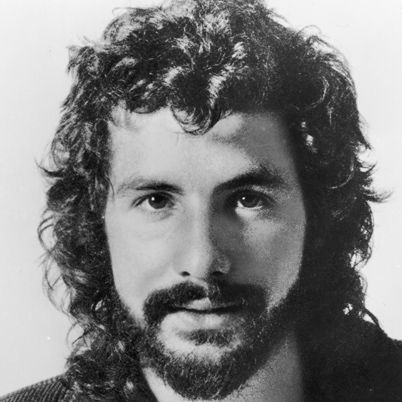

Who Is Cat Stevens?
Cat Stevens' parents ran a restaurant where he learned to play the piano as a child. At age 18, he signed with Decca Records and released his first album, and his 1970 single "Wild World" made him a star.
Cat Stevens was born Stephen Demetre Georgiou on July 21, 1948, in London, England as the youngest of three children. His parents, Greek Cypriot father Stavros Georgiou and Swedish Baptist mother Ingrid Wickman, were restaurateurs; together, they ran the Moulin Rouge on Shaftsbury Avenue. Young Stevens and his siblings often pitched in and waited tables.
The family lived in a small apartment over the restaurant — the place where Stevens first learned to play the piano — and the glitz, glamour and the nearby theatre presence of the West End was a strong influence on the young musician.
Although he was raised Greek Orthodox, Stevens' parents opted to send him to a Roman Catholic school. The combination of the two religious influences helped him develop a strong moral conscience, and provided an anti-Muslim slant to his upbringing.
At the age of eight, Stevens' parents divorced but continued to cohabitate. Even in the midst of the turmoil, the young man displayed a natural talent for artistic pursuits. In 1963, the 15-year-old, smitten with The Beatles, convinced his father to buy him a guitar. The teenager quickly began writing and playing his own songs.
Pop Stardom and Struggles
In July 1964, while attending Hammersmith Art College, Stevens made his folk music debut at Black Horse, a local bar. The performance informally launched his career. A year later he landed a publishing deal as a songwriter, and adopted the stage name Cat Stevens.
During this period, he sold the hit "The First Cut is the Deepest" to soul singer P.P. Arnold for $40. The song was a hit, making it to No. 18 on the UK Singles Chart. A year after that, at the age of 18, producer Mike Hurst lured the singer over to Decca Records. Stevens soon released his first album, Matthew and Son, which featured the hits "I Love My Dog," "Here Comes My Baby," and the title track, which charted at No. 2 and further helped to boost his career.
Although Stevens was beginning to experience some success as a pop star, he longed to release some of his more seasoned tracks. Decca declined, insisting that Stevens had been positioned to appeal to a teen audience and should continue in this vein. The blow knocked Stevens into a depression, and the star self-medicated with alcohol. The stresses of his newfound work and his hard-partying lifestyle took an additional toll on his health, and by 1968 he was diagnosed with tuberculosis. A three-month stint in the hospital (and a lengthy convalescence) gave Stevens time to reflect on his chosen path and reevaluate his approach to life.
Although Stevens had experienced success overseas, the American release of Tea for the Tillerman (1970) and the single "Wild World" made Stevens a true star in the United States. The album went gold, and brought a renewed interest to his previous recordings, which enjoyed a similar spike in sales.
Stevens experienced unprecedented success with hits including "Moon Shadow," "Peace Train" and "Morning Has Broken," and even recorded tracks for the offbeat film Harold and Maude . His next album, Catch Bull at Four (1972), stayed at the top of the charts for three weeks, making it his most successful American release. After releasing a successful greatest hits compilation in 1975, he put out his tenth album, Izitso , which also went gold.
Conversion to Islam
Around this time, while swimming at a Malibu beach, Stevens nearly drowned. Facing imminent death led the singer to make a promise: If divine intervention could save him from drowning, Stevens would devote his life to honoring God. According to Stevens, a wave pushed him to shore as if in answer to his prayers. Soon after this brush with mortality, Stevens' brother gave him with a copy of the Koran as a birthday present. The book made a deep impact on the musician.
In 1977, Stevens changed his name to Yusuf Islam and converted to the Muslim faith. Along with his adherence to his newfound religion, Stevens mandated that he would no longer record secular music. The following year, A&M Records released Back to Earth , a backlog of previously recorded tracks. The release experienced mild success.
In September of 1979, Stevens entered into an arranged marriage with Fawzia Ali, and founded a Muslim school near London. For the most part, he lived a quiet life devoted to his family and faith, and wasn't heard from until the late 80s. In 1989, Stevens claims he was misrepresented as supporting the death sentence for exiled novelist Salman Rushdie. As a result, Stevens' music was largely removed from the airwaves in the United States and he was blacklisted from the music industry.
In the mid-90s, Stevens began to release albums of spiritual lectures and Islamic-themed music. But these, combined with his philanthropic efforts, couldn't seem to erase his previous stigma. Although he vigorously condemned the terrorist acts of September 11, 2001, he was placed on a "no fly" list which prevented him from entering the United States. He was also accused of funding the Hamas paramilitary group, but he denied doing so knowingly.
Return to Music
Stevens returned to recording non-religious music in 2004. That year, he released a charity track with Irish pop singer Ronan Keating, and appeared in a live concert for Darfur refugees at the Royal Albert Hall in London. In 2005, he was named "Songwriter of the Year" and awarded "Song of the Year" by the American Society of Composers, Authors, and Publishers for his 1967 hit, "The First Cut is the Deepest." The award recognized Stevens for the song, which had been covered more than a dozen times and become a hit single for four different artists over the last four decades.
In 2006, he released his album An Other Cup to positive critical reviews. That same year, he earned another ASCAP award for "The First Cut is the Deepest," and appeared in the Nobel Peace Prize Concert honoring social activist, Muhammad Yunus.
Despite his once-negative relationship with the press, the musician's work remains popular on both sides of the Atlantic. In 2007, Stevens was awarded the Mediterranean Prize for Peace, the ECHO award, and an honorary doctorate by the University of Exeter all in recognition for his efforts to increase understanding between Islamic and Western cultures. A year later, he was nominated for induction into the Songwriters Hall of Fame.
Stevens remains married to Ali, with whom he has five children. The family resides in London.
QUICK FACTS
- Name: Cat Stevens
- Birth Year: 1948
- Birth date: July 21, 1948
- Birth City: London
- Birth Country: United Kingdom
- Gender: Male
- Best Known For: Folk singer Cat Stevens wrote the song "The First Cut is the Deepest" in the 1960s. Since then it has become a hit for four different artists.
- Astrological Sign: Cancer
- Hammersmith Art College
Famous British People

The Real Royal Scheme Depicted in ‘Mary & George’

William Shakespeare

Anya Taylor-Joy

Kate Middleton, Princess of Wales
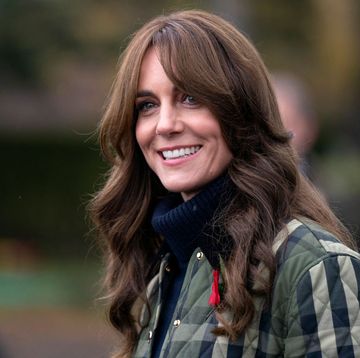
Kensington Palace Shares an Update on Kate

Amy Winehouse
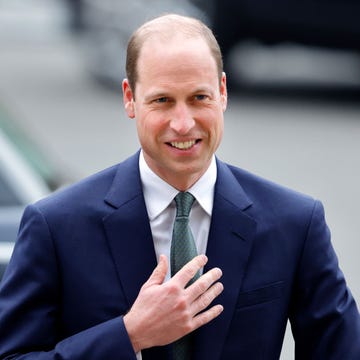
Prince William
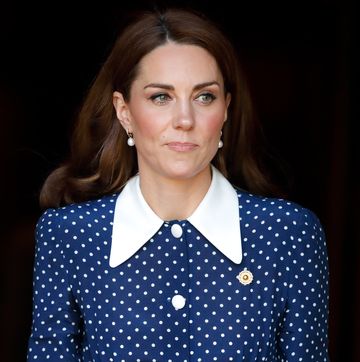
Where in the World Is Kate Middleton?
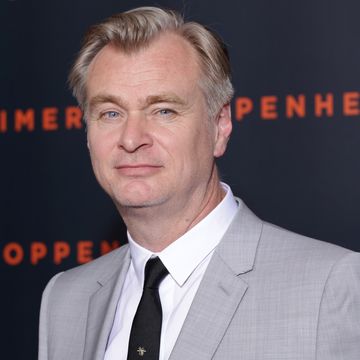
Christopher Nolan

Emily Blunt
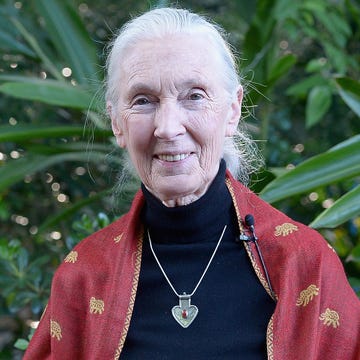
Jane Goodall
- Environment
- Road to Net Zero
- Art & Design
- Film & TV
- Music & On-stage
- Pop Culture
- Fashion & Beauty
- Home & Garden
- Things to do
- Combat Sports
- Horse Racing
- Beyond the Headlines
- Trending Middle East
- Business Extra
- Culture Bites
- Year of Elections
- Pocketful of Dirhams
- Books of My Life
- Iraq: 20 Years On
Yusuf Islam talks about his spiritual memoir, living in Dubai, and new album
In an exclusive interview, yusuf islam, the renowned musician formerly known as cat stevens, talks about his first book, the spiritual memoir why i still carry a guitar, and his forthcoming album..
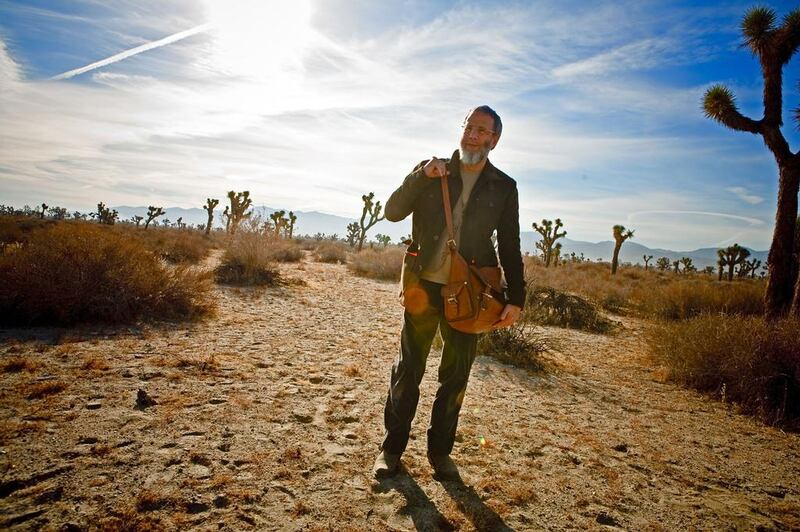
Yusuf Islam, who was inducted into the Rock and Roll Hall of Fame in April, says his book explains the actions and decisions he ‘made in real life’. Courtesy Yusuf Islam

The eminent musician and humanitarian Yusuf Islam – previously known as Cat Stevens – has returned to the spotlight with a project that is perhaps his most personal work to date.
In his first book, Why I Still Carry a Guitar , the 66-year-old speaks – powerfully and with some dry humour – of his spiritual journey since converting to Islam in 1977, and tackling the many misconceptions that came along the way.
“There have been too many myths circulating for a long time and I felt it was time to put a few of them to bed,” he says. “I hope to write a more comprehensive autobiography in the future – inshallah. Till then, this book will certainly fill the gap.”
How did the idea for this book take shape?
We were hearing stories about Muslims in certain countries lamenting my return to writing and singing with a guitar again. Some even thought that I had left Islam – God forbid.
Because of the climate of conservatism, which has dominated certain Muslim communities and their perception of Islam recently, I decided to address some of these issues face-on by laying down the principles of Islam and its approach to leisure and entertainment.
The evolvement of the science of Fiqh [Islamic jurisprudence] is a fascinating subject, but it is also not a closed subject. What is halal and what is haram have been stated clearly by Allah and His Prophet (peace be upon him) in the Quran and Sunnah [the sayings of the Prophet Mohammed].
But where there are grey areas, there are allowances for different opinions. During the early days of the Khilafah [early rulers who came after the Prophet Mohammed], Muslims had a much more open and receptive attitude to the cultures they came into contact with. And ijtihad [interpretations by scholars of topics not covered in the Quran or Sunnah] was a major instrument of its ability to progress and deal with new questions or challenges.
Many have to learn that entertainment and music can be socially and intellectually centred and, if used correctly, a powerful means of change.
One of the most interesting features of the book is that it is different from your songwriting voice. While your songs are rich and heavy with metaphor, in the book you have adopted a crisp and direct writing style. Was that a conscious decision to appeal to as many people as you can?
Perhaps I did it subliminally. In music you can use metaphors with ease – if a person doesn’t understand the parable they can still enjoy the melody of the music.
If, however, a person reads a book and misses the meaning of its metaphors, this will be extremely disheartening for both the reader as well as the author.
So, my objective was not to write another song, but to reveal some of the clear thoughts and interesting backgrounds that lay behind the decisions I made in real life. That way everybody gets to understand the basic message of the book – as well as looking at the pictures.
Since your last album, 2009's The Roadsinger , you have been exploring different forms of writing. You wrote and composed the musical stage play Moonshadow in 2012 and now this book. Did you use different creative approaches for the different mediums?
Every medium has its rules. Content dictates form in most cases. Most of my songs in the past and up to today are stories and provide a picture or an emotional scene for the listener to feel, enter and take part in.
The theatre is a world in itself. The possibility for creating experiences that move people is increased many times over. In the end, the best stories are usually about a battle of good over evil – that has never changed.
In the book, you mention the negative media reaction you received when you announced your conversion to Islam. How tumultuous was that period?
I mention this particular point in the book and try to let the reader appreciate how difficult it is to change people’s minds once they have already made them up. It gets harder as people grow older, especially if it helps to secure certain people’s comfort zones.
I suppose in my youth I just had less fear about going places people were told to be scared of. So I took the vilification in my stride and went on doing what I wanted to do. But now this book may help explain my silence and not interpret the silence as guilt.
One of the key themes of this book is that Islam is being wilfully misinterpreted by extremists – both Muslim and non-Muslim. Your book also details some of the steps you have taken to correct that imbalance. In a way, is this one of the goals of the book – to act as a call to action for Muslims to take back their religion?
I believe Islam was truly spread by example. So whatever good a Muslim does publicly will be seen – the same is true for the bad.
Looking at the life of the Prophet and the early followers of his message, you will certainly be able to judge the difference between the great example of the Prophet, who was chosen by God to lead humanity to the height of faith and eternal peace, and those who distort and misunderstand Islam’s noble objectives.
I hope that whatever actions I do are in conformity with the right example. One of the main messages of my book is to explain how important it is to refer to Allah and His Prophet, and not be swept away by the waves and force of calamities that engulf our world.
Allah Almighty says: “Give good news to the patient.”
In the book’s final pages, you mention that you have “become a looking glass, through which the West can see Islam and Muslims can see the West”. For someone who prefers to stay away from the limelight, is that an uncomfortable position be in?
Considering the fact that I have been in the spotlight more or less since I was 18, there is an aspect of normality to my public profile, which I have grown to live with. As much as I would like to disappear into the crowd, my work won’t let me – difficult as it is for my family.
However, if you do happen to see me in a supermarket, please allow me to get on with my shopping.
Nearly 12 years ago, you decided to relocate from the United Kingdom to the UAE. What did your UAE stay offer you, personally and creatively?
The weather, as well as the comforts of Islamic culture and knowledge. The position of the UAE in the world is strategic, especially as the economic power of the East grows.
I hope that the model, which is being built here in the region, can lead the way in showing the potential of Islamic modernity and tolerance and reduce the stereotypical image of the Arab – although camels will forever be beautiful in my eyes.
• Why I Still Carry a Guitar by Yusuf Islam is out on September 16 through Motivate Publishing. For more details about the book, go to www.booksarabia.com or www.yusufislam.com . Islam will appear at a special book signing event at The Dubai Mall’s Book World by Kinokuniya on September 25 at 7pm

Cat Stevens: A Deep Dive into His Iconic Folk Legacy
- Vibration Magazine
“Those Deep, Soulful Lyrics”: Cat Stevens’ Impact on the Folk Genre
The very best of cat stevens (cd).
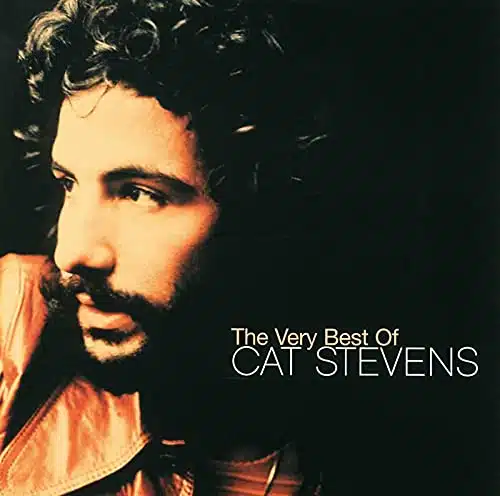
The Very Best Of Cat Stevens is a timeless CD collection that encompasses the defining moments of the renowned folk-rock singer’s illustrious career. Highly recommended for any music enthusiast, this album is a testament to Steven’s unparalleled talent for creating catchy, evocative, and meaningful songs. Painstakingly curated, the CD features a mix of Steven’s beloved classics as well as some less known yet equally enchanting compositions, providing listeners a well-rounded overview of the artist’s musical journey.
The album opens with the evergreen hit, “Wild World,” inviting the listener on a profound musical journey through Steven’s diverse repertoire. Other highlights include prolific tracks such as “Peace Train”, “Father and Son”, and “Morning has Broken”. This collection articulates Stevens’ gift for crafting lyrical narratives with a depth that truly stirs the soul. His music, which has always been marked by a unique blend of folk and rock, is showcased in all its glorious authenticity.
Whether you’re a long-time fan of Cat Stevens or a newcomer interested in exploring his musical brilliance, The Very Best Of Cat Stevens is an indispensable addition to any music collection. This album does not merely offer songs, but timeless classics that continue to resonate. It is a testament to Cat Stevens’ enduring legacy in the world of music and a reminder of the power of his emotive and moving artistry.
A- Cat Stevens’ Revolutionary Impact on the Folk Genre
Cat Stevens, born as Steven Demetre Georgiou and later known as Yusuf Islam, leapfrogged into the music scene in the mid-60s with a pop sensibility. However, it was his transformation into a folk maestro that defined his legacy. Marrying profound lyrics with an ethereal sound, Cat crafted a distinctive niche within the industry, pushing the boundaries of folk music.
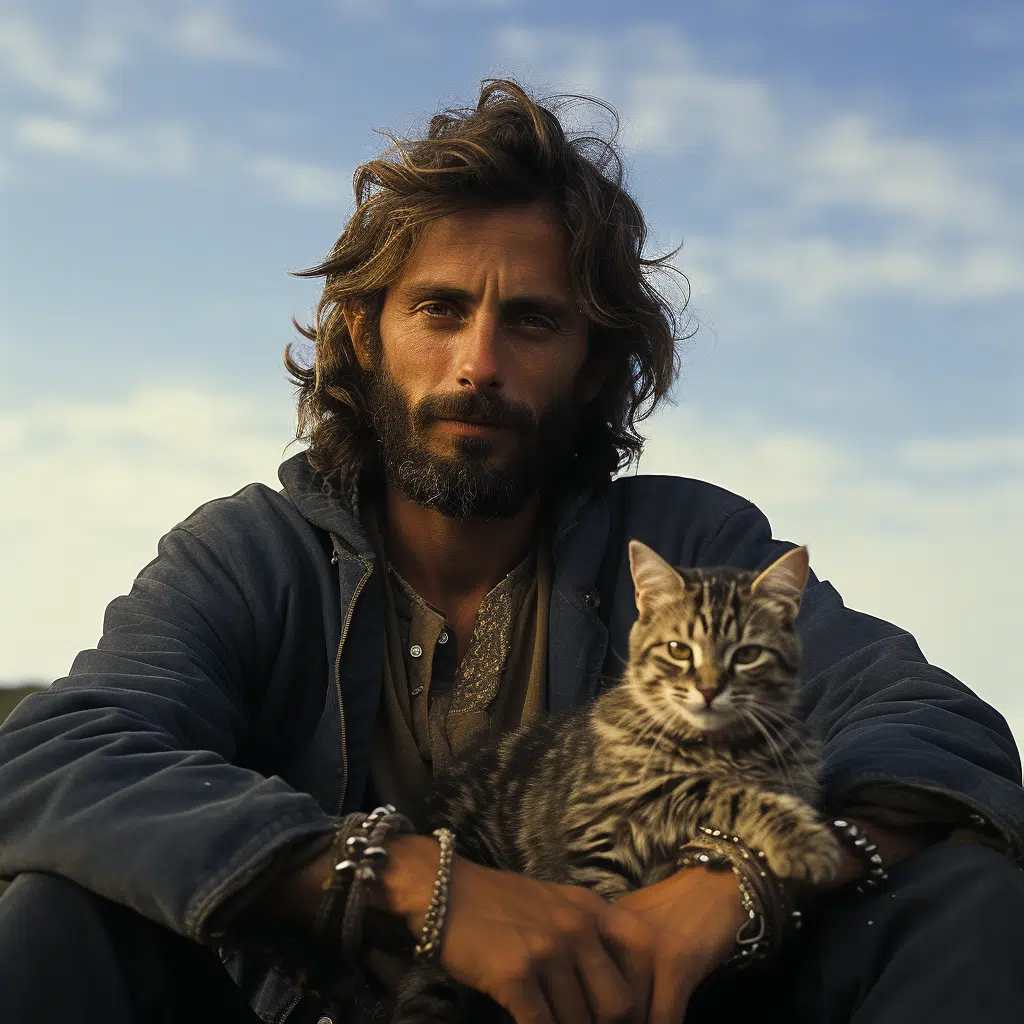
B- Examination of Key Lyrics and their Cultural Impact
Couched in his hooky melodies are lyrics rich with philosophical introspection and profound questioning. Take, for instance, ’Father and Son,’ a heartfelt dialogue between generations. Or ‘Where Do the Children Play?’ , which years ahead of its time, highlights concerns of an overly industrialized world. These songs resonate with audiences, sparking discussions about social and personal responsibility.
C- Analysis of Stevens’ Long-term Influence on Artists and the Music Industry
Powerhouses like The built on Stevens’ lyrical depth while adding their own psychedelic twist, blending genres in a way that would have been unfathomable without Stevens’ influence. Meanwhile, contemporary folk artists have taken notes from Stevens’ introspective songwriting, proving his timeless influence.
Tea For The Tillerman
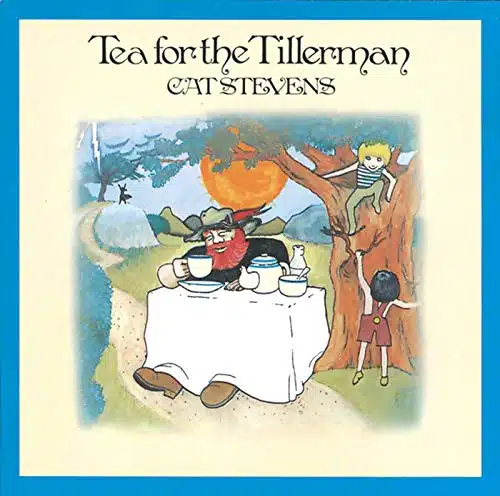
Tea For The Tillerman is an exquisite blend of tea designed for those who genuinely appreciate a beautifully crafted beverage. This tea is richly flavored with a blend of spices that not only bring distinct aroma, but also explored by tea connoisseurs in their quest for a unique and refreshing experience. Every sip is a sensory journey of taste and smell, making it an insightful exploration into the diverse world of tea, from the gentle infusions to the robust tannins delivered in black teas.
The product features a mix of classic loose leaf teas, including black, green, and herbal blends. All ingredients used in this tea are entirely natural and sourced from sustainable organic farms across the world. Tea enthusiasts will appreciate its delicate blend of flavors that tantalizes the taste buds, leaving a lingering, satisfying aftertaste. Each package contains enough tea leaves to make an impressive number of cups, offering value to frequent tea drinkers.
Tea For The Tillerman is not only a delightfully versatile blend ideal for any time of the day but also an excellent choice for a gift. Its beautifully designed package illustrates a touch of elegance and a sense of tranquillity, making it a perfect present for tea lovers. Whether you plan to enjoy its warming cup on a chilly winter’s evening or use it as a thoughtful gift to a loved one, Tea For The Tillerman is a perfect choice.
“Harmony and Melody”: Cat Stevens’ Iconic Folk Sound
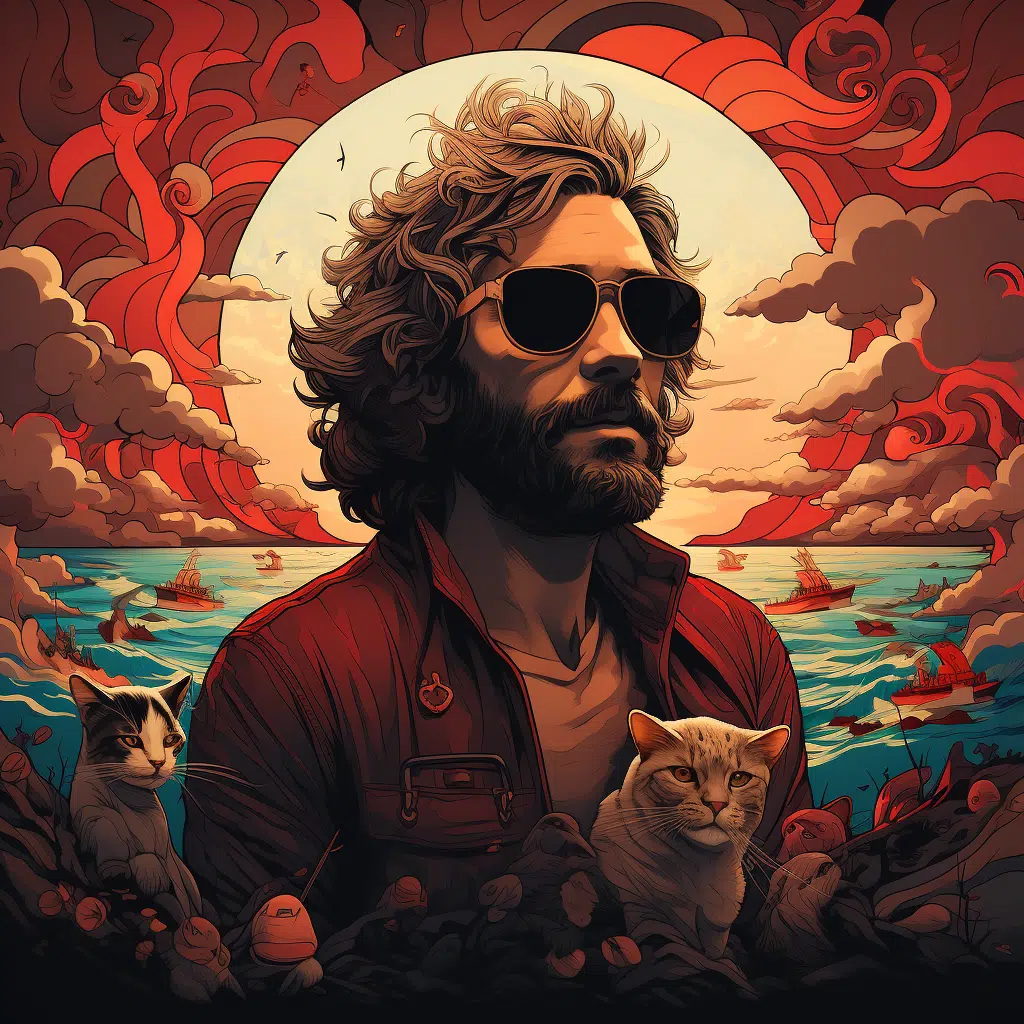
A- A Sound-Print Unique to Stevens: Decoding His Acoustic Excellence
Stevens’ sound is marked by an undeniably unique acoustic brilliance, where his guitar strums flow like warm honey and his voice, an intimate conversation. Each note became a form of storytelling, making his music a sonic quilt of narratives.
B- Tracing the Influences: The Melodic Elements that Crafted Stevens’ Iconic Sound
Influenced by the likes of Curtis Mayfield and Chet Baker Stevens developed a sound of irresistible charm and relatability. The sway of soul, jazz, and blues mingling with his unmistakable folk style forms a tapestry of sonic majesty unique to Stevens.
C- How Stevens’ Sound Shaped Contemporary Music and Artists
Ripples of Stevens’ melodic genius can be traced in a variety of modern works. Artists of diverse genres have sampled his classic tunes, highlighting his enduring reach from hip hop to indie rock.
King of a Land
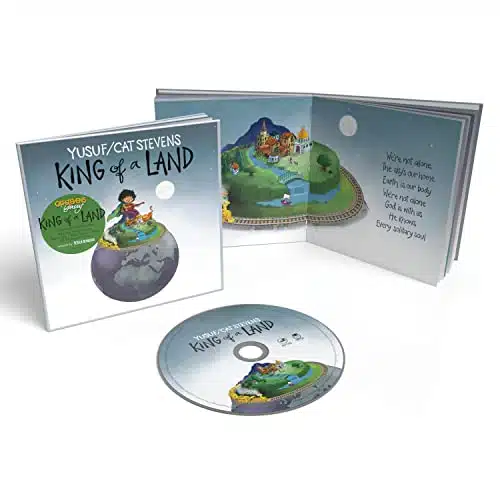
King of a Land is a mesmerizingly detailed and lavishly designed board game that takes you on a journey into a magical world of kingdoms, power, and conquest. The game is beautifully crafted, showcasing rich illustrations and intricate detailing that vividly bring the enchanting world to life. As the players, you have to strategically build, rule, and defend your kingdom while strategically managing your resources, armies, and alliances.
With King of a Land, every round is a new test to your decision-making skills. The gameplay engages wit, tactics, treachery, and negotiation, providing an immersive and challenging experience like no other. Being a royal is not an easy task, as you have to balance the well-being of your subjects while constantly being on your toes due to threats by rivals or natural disasters that can strike your kingdom at any moment.
This game is not only about the pursuit of power but also tests your diplomacy and quick wits. It’s highly interactive and allows for countless playing strategies, making each game unique and unpredictable. With King of a Land, live the life of a true king and immerse yourself in a world where each decision can alter the balance of power.
“Walking the Path of Serendipity”: Cat Stevens’ Career Transformation
A- early life and career of cat stevens.
Born on July 21, 1948, to a Greek-Cypriot father and Swedish mother in London, Steven Demetre Georgiou had a multicultural upbringing. Renaming himself Cat Stevens, for its catchy and memorable quality, he embarked on his musical journey in the 1960s.
B- The Religious Conversion: Yusuf Islam and Music
Stevens found success but also struggle in his early pop-centric career. A potentially fatal bout of tuberculosis in the late ’60s triggered a metamorphosis. During a lengthy recovery, he reflected, meditated, and redefined his music, marking a shift from pop sensation to reflective folk-philosopher.
C- Career Evolution: From Pop Sensation to Folk Icon and Philanthropist
Stevens’ career is a study of constant evolution, manifesting in his conversion to Islam in 1978. Reinventing himself as Yusuf Islam, he stepped away from the music industry to pursue education and philanthropic endeavors before re-emerging with an invigorated sound in the 2000s.

“The Wind of My Soul”: A Deeper Understanding of Cat Stevens
A- personal life: factors that shaped him as an artist.
Stevens’ transformation didn’t occur in a vacuum. His multicultural background, the near-death experience, and finally, his conversion to Islam conspired to shape what we now know as Cat Stevens.
B- Stevens’ Philosophy: How it Mirrors in His Music
Stevens’ philosophy of simplicity and rawness, evident in both his life and his music, encourages listeners to tread a path of self-discovery, resembling his spiritual journey. His songs, often reflective, provide an insight into his ideology.
C- Public Perception and Legacy: How Different Generations View Cat Stevens
Many remember Stevens as a 60s pop star, others recall his folk resurgence while a newer audience recognizes Yusuf, the singer of peace anthems. Navigating through diverse perspectives, Stevens’ music became a pilgrimage from ‘Matthew and Son’ to ‘Heaven/Where True Love Goes’ .
Peace Train
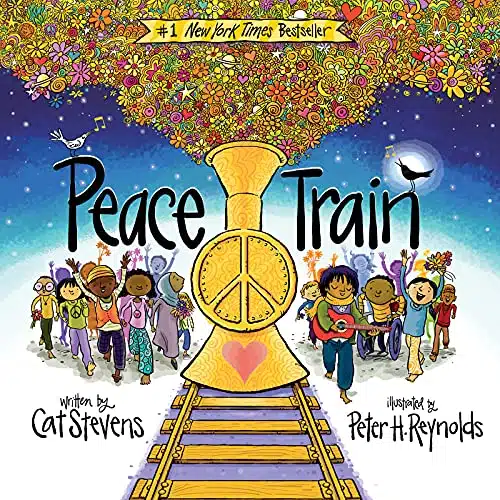
The Peace Train is a beautifully designed, relaxing and self-caring product that aims to provide you with moments of zen in everyday life. Crafted expertly to stimulate your visual and auditory senses, it combines unique aesthetics and soothing sound mechanisms. The imagery of a train on the track is softly crafted on the surface in wooden texture, creating a nostalgic and calm ambiance when in use.
The peace train goes beyond being a mere decor piece. Its design includes elements created to produce calming sounds that mimic the rhythmic motion of a train. The soothing, rhythmic sounds work to slow your heartbeat, ease tension, and carry you away on a mental journey. The effect is magnified by the peace train’s unique mobility feature; it not only imitates the calming sounds of a moving train but also replicates its movement across a track.
Peace Train is not just an object; it’s a relaxation and well-being tool. This product serves people who are constantly on the go and need a reminder to take a moment for themselves, to find peace in their environment. Whether you’re working from home, in the office, or anywhere else, Peace Train helps create a pocket of tranquility in your day, serving as a soothing influence amid the rush of daily life.
“The Midst of His Journey”: Cat Stevens in 2024
A- recent works and contributions.
Stevens’ recent works continue to resonate with his fans. His religious albums, like 2020’s ‘Tea for the Tillerman²’ and 2024’s ‘A Mosque in the Terminal,’ reflect his enduring passion for music. He is also committed to addressing social issues in line with his philanthropic pursuits.
B- Analyzing Stevens’ Relevance and Impact in 2024
It’s 2024, and Stevens remains relevant. His signature acoustic sound, thoughtful lyrics, and tendency to reflect on societal issues connect with listeners in profound ways. Music lovers find his body of work, spanning five decades, transcendent and timeless.
C- Anticipating the Future: Where Can We Expect His Music to Go Next?
As always, Stevens’ music will continue to evolve, fuelled by his life experiences and unwavering commitment to raise awareness about global issues. We wait, eager for his next chord to strike, his next lyric to enthrall.

“The First Cut is the Deepest”: Delving into Cat Stevens’ Most Iconic Albums
A- ‘tea for the tillerman’: the album that reshaped folk music.
1970’s ‘Tea for the Tillerman’ propelled Stevens into the folk spotlight. With tracks like ‘Wild World’ and ‘Father and Son’, the record has left an indelible mark on the genre, redefining the essence of folk music.
B- ‘Catch Bull at Four’: Record-Breaking Success and Artistic Evolution
Stevens’ follow-up, ‘Catch Bull at Four’ , proved equally influential. The album showcased his maturing lyrical profundity, achieving record-breaking success upon its 1972 release.
C- ‘Back to Earth’: The Last Studio Album Before Conversion – A Closer Look
‘Back to Earth’ was the last album before his conversion, acting as his temporary swan-song. The record embodied his spiritual awakening, signifying the end of one chapter and the beginning of another.

“Where Do the Children Play”: Cat Stevens’ Influence on Future Generations
A- exploring stevens’ impact on current popular folk artists.
Stevens’ unique style continues to influence modern folk artists. His poetical songwriting inspires a new wave of artists who weave a tapestry of socially conscious narratives into their music, mimicking Cat’s iconic style.
B- Reflection of Stevens in Modern Musicians’ Work
Modern artists reflectively echo Stevens’. Indie-folk band Fleet Foxes anchored some of their harmonic textures in Stevens’ acoustic groundwork, while neo-soul artist Michael Kiwanuka channels his introspective lyricism, manifesting Stevens’ lasting legacy.
C- Cat Stevens’ Message for the Modern Generation
His strong messages, from environmental advocacy in ‘Where do the Children Play?’ to familial bonds in ‘Father and Son’, remain influential, addressing contemporary concerns. His music, a beacon of social and personal understanding, guides a new generation towards a compassionate world.

“On the Road to Find Out”: Final Musings on Cat Stevens
A- the enduring legacy of cat stevens.
Cat Stevens’ eclectic career spans pop, folk, and religious music, establishing him as a multi-dimensional artist. Today, his music still stands tall, its richness inviting listeners of all age groups to explore profound philosophical notions.
B- Analysis and Interpretation of His Influential Career
Stevens’ career is a testament to the power of personal transformation and the lasting impact of thought-provoking music. His metamorphosis from a pop singer to a folk icon and finally, the activist Yusuf Islam, shapes a compelling narrative of artistic evolution.
C- The Unfading Relevance of Stevens’ Music and Message
Cat Stevens’ music continues to strike chords with the audience, decades after its creation. Even in 2024, the intricate tapestry of Stevens’ life and career is raveled and discovered, hinting at eternal relevance that only a few artists achieve.
What was Cat Stevens illness?
Yikes! Cat Stevens actually fell pretty ill from tuberculosis back in 1969. This serious bout with TB sidelined him for several months. It was a rough patch for sure, but it gave him a lot of time to reflect – and boy, did he churn out some amazing songs afterwards!
How old is Cat Stevens today?
Let me do the math… Born on July 21, 1948, Cat Stevens clocks in at a cool 73 years old today. Can you believe it? Time sure does fly fast!
How did he get the name Cat Stevens?
Ah, the name Cat Stevens? Now, that’s a fun yarn. Back in his adolescence, a close gal-friend noted that he had eyes like a cat – sharp and striking. From that point forward, he began to use ‘Cat Stevens’ as his stage name. Talk about an unexpected but catchy moniker, eh?
Why did Cat Stevens get deported?
Well, well, well, the hot topic of Cat Stevens’ deportation. In 2004, an unfortunate confusion involving his name and its likeness to a terror watchlist saw him denied entry into the U.S. Talk about being at the wrong place at the wrong time!

When did Cat Stevens have tuberculosis?
As mentioned earlier, Cat Stevens was diagnosed with tuberculosis in 1969. This tough-as-nails disease had him bedridden and away from the stage for the better part of a year.
Why did Cat Stevens stop making music?
Why did Cat Stevens stop making music, you ask? Well, in 1977, he converted to Islam and took a long hiatus from commercial recording to focus on his faith. Plus, he had a spot of bother with his record label that dampened his enthusiasm.
Did Cat Stevens have any children?
Yep! Cat Stevens, or as he’s known now, Yusuf Islam, has five children. The apple doesn’t fall far from the tree, his daughters are involved in the music industry too.
Who was Cat Stevens partner?
For years, Cat Stevens’ partner in life has been Fauzia Mubarak Ali. Together, they’ve navigated the ups and downs of life, with a love story that resonates beautifully.
Does Cat Stevens still perform?
Well, after his lengthy sabbatical, Cat Stevens bounced back into the limelight in 2006 with fresh, soulful tunes. Today, he occasionally hits the stage, potently reminding us of his timeless musical prowess.
Does Cat Stevens have a wife?
About Cat Stevens’ marital status? Yes indeed, he’s happily married to his loving wife, Fauzia Mubarak Ali. A rock-solid relationship, that one.
Did Cat Stevens have a son?
Does Cat Stevens have a son? Yes siree, he does! His son, Muhammad Islam, isn’t quite as musically inclined as his sisters, but hey, everyone marches to the beat of their own drum, right?
- November 15, 2023
- No Comments
Leave a Reply Cancel reply
Your email address will not be published. Required fields are marked *
Save my name, email, and website in this browser for the next time I comment.
Get the Latest in Music with Our Newsletter!

Get the Latest With Our Newsletter
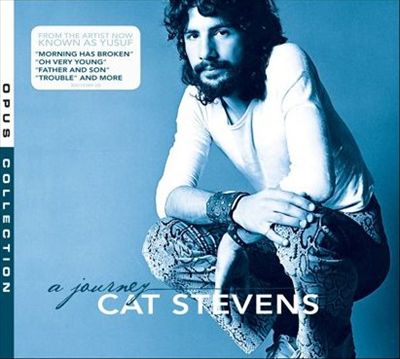
Opus Collection: A Journey
Cat stevens.
STREAM OR BUY:
Release Date
Discography timeline, allmusic review, user reviews, track listing, similar albums, moods and themes.
The six Cat Stevens albums you need to know about
Despite a string of hits including Matthew & Son and Wild World, Cat Stevens was always a reluctant star. These are his best albums
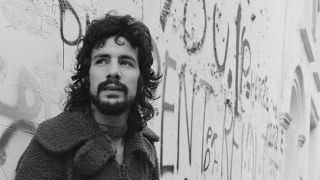
Cat Stevens rode the crest of the singer-songwriter wave through the early part of the 70s, alongside the likes of James Taylor and Carole King. He played to 15-20,000 people a night at arenas around America. He sold millions of records.
Hip cult heroes like Nick Drake, John Martyn and Richard Thompson (all of whom were signed to Cat’s record label, Island Records) may have been the darlings of the rock media, but their total combined sales came nowhere near one Cat Stevens album.
Here are the six albums you need to know.

Matthew And Son (1967)
Cat Stevens may have complained that he was a ‘puppet’ on his first album, but he was also a novice and Mike Hurst’s production gives his precocious songwriting a commercial pop platform – even though the arrangements were occasionally misguided.
Stevens had already proved his credentials with I Love My Dog , Matthew & Son and Here Comes My Baby (which was a hit for The Tremeloes in Britain and America), but even so filling an entire album with his own songs was an exceptionally bold move for the time, particularly for someone whose name was not Lennon or McCartney.
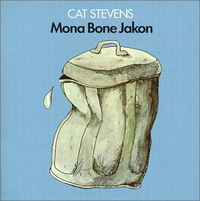
Mona Bone Jakon (1970)
Returning after an absence of two years after being stricken with tuberculosis, Cat Stevens starts his career anew with an album of disarmingly personal songs that are a world away from his previous pop star persona.
The sweet romance of Lady d’Arbanville is a deceptive opening for an album that questions his earlier celebrity ( Pop Star ) and lifestyle ( Trouble ) and then hints at a deeper, more fulfilling alternative ( I Think I See The Light, Fill My Eyes ). The sparse arrangements and the simple, direct vocals struck a chord with many who had similar thoughts at the start of the 70s.
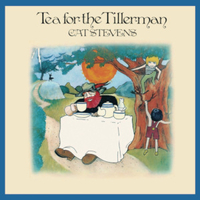
Tea For The Tillerman (1970)
This is the quintessential Cat Stevens album, where the tentative quest of Mona Bone Jakon blossoms into a journey of discovery fuelled by faith and optimism, whether he’s wondering Where Do The Children Play , looking for a Hard Headed Woman , plotting the route on Miles From Nowhere or simply On The Road To Find Out .
His sense of melody and distinctive, catchy hooks culminates in the sublime Wild World . He defines the generation gap with warmth and passion on Father & Son and sums up his own sentiments on But I Might Die Tonight : " I don’t want to work away/Doing just what they all say ."
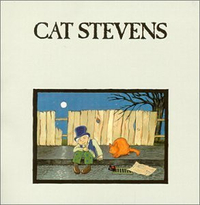
Teaser And The Firecat (1971)
His third album in 15 months, Stevens begins to tighten up the message, notably on the holy roller that is Peace Train and the evangelical Changes IV , while in The Wind he wonders where the journey is leading. He also refines his sense of melody by adapting the hymn, Morning Has Broken , and it all culminates with the exquisite Moonshadow , arguably the most affecting, poignant song he ever wrote.
The balance between his spiritual search and his musical instincts remains perfectly poised and eminently satisfying to anyone who had bought either of his two previous albums, while still capable of luring new converts.
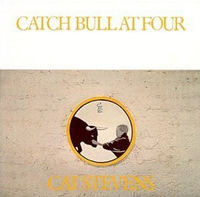
Catch Bull At Four (1972)
A sense of urgency creeps into Catch Bull At Four that mirrors Cat Stevens’s growing sense of purpose, typified by the single-minded determination of Can’t Keep It In . The spiritual quest he’s been developing takes on a more overtly religious tone, and the rhythms and arrangements are more intense.
He’s also starting to spread his musical net wider, even absorbing some of his Greek roots on O Caritas . While the album is less fluid than before, he retains the power to engage your attention, particularly on the opening track, Sitting , where the lonely nature of his odyssey becomes vividly apparent to the listener.
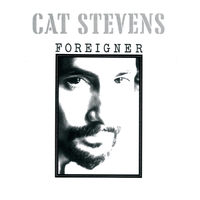
Foreigner (1973)
A diversion on the road to fulfilment that succeeds against the odds. Jettisoning his band and long-time producer Paul Samwell-Smith, Stevens heads to Jamaica with a bunch of session musicians, including brass and string players plus a female backing trio.
The result could have been a disaster but instead the changes freshen up his musical approach. The 18-minute Foreigner Suite provides a new context for his restless ideas, while the soul-tinged elegance of Later shows that his style can adapt to different surroundings. The message is still the same though: as he sings on The Hurt : " Love is the ultimate truth ."
50th anniversary editions of Mona Bone Jakon, Tea For The Tillerman and Teaser And The Firecat are out now .
Classic Rock Newsletter
Sign up below to get the latest from Classic Rock, plus exclusive special offers, direct to your inbox!
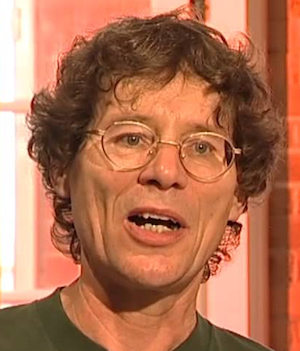
Hugh Fielder has been writing about music for 47 years. Actually 58 if you include the essay he wrote about the Rolling Stones in exchange for taking time off school to see them at the Ipswich Gaumont in 1964. He was news editor of Sounds magazine from 1975 to 1992 and editor of Tower Records Top magazine from 1992 to 2001. Since then he has been freelance. He has interviewed the great, the good and the not so good and written books about some of them. His favourite possession is a piece of columnar basalt he brought back from Iceland.
"I like to make women happy. I don't play for guys": That time Carlos Santana made an album of classic rock covers including songs by AC/DC and Led Zeppelin
"Kids tell me: 'I wanna be a rock star.' I say: 'Nah, get a job in a clothing store instead'": Steve Miller on LSD, boredom and salvation
“We used humour – you could do that then; there’s no humour in chart music now”: Graham Gouldman on the 10cc song he wouldn’t write today and the gizmo that broke up the classic line-up
Most Popular

Cat Stevens: A Journey of Transformation and Introspection
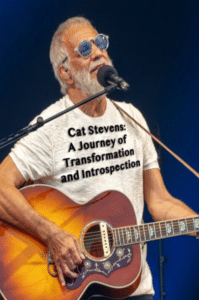
Cat Stevens: a journey of transformation and introspection. Born as Steven Demetre Georgiou in London, he began his musical career in the 1960s under the stage name Cat Stevens. Catchy, folk-inspired tunes characterized his early work, and he quickly rose to fame with hits like “Wild World” and “Father and Son.” These songs resonated with the spirit of the times, capturing the hearts of many with their poetic lyrics and melodic charm.
However, at the height of his fame in the early 1970s, Stevens experienced a life-changing event. He contracted tuberculosis, which led to a lengthy hospitalization. This period of isolation and near-death experience prompted a deep spiritual and philosophical crisis in him. During his recovery, he began to explore different religious and spiritual pathways, seeking answers to the existential questions that plagued him. This introspection was evident in his later music, which took on a more reflective and introspective tone.
In 1977, Stevens underwent a profound personal transformation, converting to Islam and changing his name to Yusuf Islam. This conversion marked a significant turning point in his life and career. He abandoned his music career, which he felt was no longer compatible with his new religious beliefs, and dedicated himself to educational and philanthropic work within the Muslim community.
For nearly three decades, Yusuf lived away from the public eye, focusing on his faith, family, and charity work. However, in the early 2000s, he slowly began to re-embrace his musical roots. He recognized that music could be a powerful medium to bridge cultural and religious gaps and promote peace and understanding.
In 2006, he officially returned to the music world, releasing new albums and embarking on tours. His new music blended the melodic folk of Cat Stevens with spiritual themes and messages of peace, reflecting his journey and growth. His return was welcomed by fans old and new, who found inspiration in his journey and the universal messages in his music.
Today, Yusuf/Cat Stevens stands as a symbol of peace and spiritual awakening. His journey from pop star to devout Muslim and back to music, albeit in a new form, is a testament to the power of personal transformation and the enduring nature of artistic talent. His story is not just about the music but also the long road of self-discovery and the pursuit of a deeper understanding of life and one’s purpose.
Leave a Reply Cancel reply
You must be logged in to post a comment.
Stay up to date with notifications from The Independent
Notifications can be managed in browser preferences.
UK Edition Change
- UK Politics
- News Videos
- Paris 2024 Olympics
- Rugby Union
- Sport Videos
- John Rentoul
- Mary Dejevsky
- Andrew Grice
- Sean O’Grady
- Photography
- Theatre & Dance
- Culture Videos
- Food & Drink
- Health & Families
- Royal Family
- Electric Vehicles
- Car Insurance deals
- Lifestyle Videos
- UK Hotel Reviews
- News & Advice
- Simon Calder
- Australia & New Zealand
- South America
- C. America & Caribbean
- Middle East
- Politics Explained
- News Analysis
- Today’s Edition
- Home & Garden
- Broadband deals
- Fashion & Beauty
- Travel & Outdoors
- Sports & Fitness
- Sustainable Living
- Climate Videos
- Solar Panels
- Behind The Headlines
- On The Ground
- Decomplicated
- You Ask The Questions
- Binge Watch
- Travel Smart
- Watch on your TV
- Crosswords & Puzzles
- Most Commented
- Newsletters
- Ask Me Anything
- Virtual Events
- Betting Sites
- Online Casinos
- Wine Offers
Thank you for registering
Please refresh the page or navigate to another page on the site to be automatically logged in Please refresh your browser to be logged in
Yusuf/Cat Stevens reveals the near-death experience that led him to convert to Islam
Singer converted to islam officially in 1977, article bookmarked.
Find your bookmarks in your Independent Premium section, under my profile
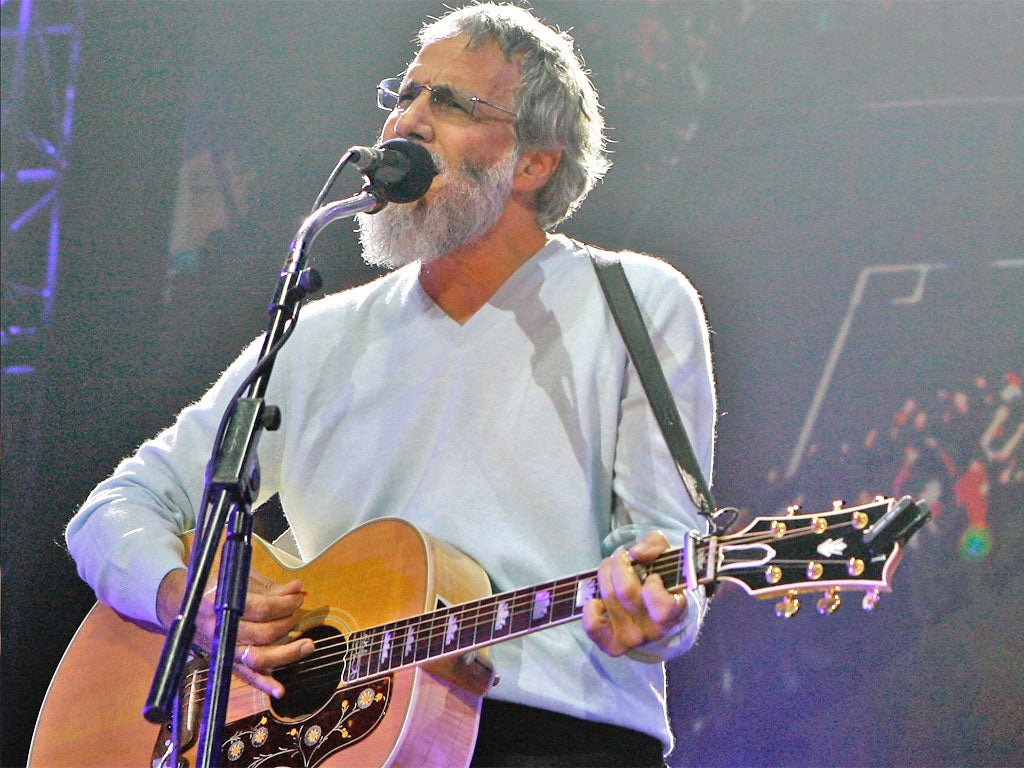
Sign up to Roisin O’Connor’s free weekly newsletter Now Hear This for the inside track on all things music
Get our now hear this email for free, thanks for signing up to the roisin o’connor’s email.
Cat Stevens – now known as Yusuf/Cat Stevens – has opened up about his conversion to Muslim faith.
The singer spoke about his choice to convert when he appeared on the BBC Four radio program Desert Island Discs yesterday (28 September).
Stevens – real name Steven Demetre Georgiou – cited his 1976 near-death experience in Malibu as the event which ultimately led him to convert to Islam.
He said: “I was an Englishman. I didn’t know it wasn’t wise to go out at that time of day and take a swim, so I did.
“I decided to turn back and head for shore and, of course, at that point I realised, ‘I’m fighting the Pacific.’ There was no way I was going to win. There was only one thing to do and that was to pray to the almighty to save me. And I did.”
The 72-year-old continued: “I called out to God and he saved me. A little wave came from behind. It wasn’t big. It was just simply pushing me forward.
“The tide somehow had changed and I was able to get back to land. So I was saved. I didn’t know what was going to happen next.”
Following the incident, the musician was given a Quran by his brother. Stevens said: “I would never have picked up a Quran. But it became the gateway. After a year I could not hold myself back. I had to bow down.”
- Visionary or cultural appropriator? Revisiting Bitches Brew artist Mati Klarwein
- In Cold Blood, review: A vital look at a dark chapter in NHS history
- Nicole Beharie: ‘Miss Juneteenth is not about a western ideal of beauty’
The singer formally converted to Islam the following year in 1977, and adopted the name Yusuf Islam the year after that.
He told host Lauren Laverne that the news of his conversion was met with mixed opinions. Stevens said that in Turkey he was “raised on a pedestal” while “on the other side there were people who said, ‘He’s a bit of a traitor, isn’t he? He’s turned Turk.'”
Enjoy unlimited access to 70 million ad-free songs and podcasts with Amazon Music
Sign up now for a 30-day free trial
The musician said: “That was very difficult because at one point I was an icon of the majority and now I am part of the minority who are looked down upon and certainly, to a large extent, misunderstood.”
Stevens also revealed that one of the most upsetting times in his life was the media’s portrayal of him as a supporter of the Iranian fatwa against the novelist Salman Rushdie in 1989.
The singer recalled: “I was certainly not prepared or equipped to deal with sharp-toothed journalists. I was cleverly framed by certain questions. I never supported the fatwa. I had to live through that.”
Join our commenting forum
Join thought-provoking conversations, follow other Independent readers and see their replies
Subscribe to Independent Premium to bookmark this article
Want to bookmark your favourite articles and stories to read or reference later? Start your Independent Premium subscription today.
New to The Independent?
Or if you would prefer:
Want an ad-free experience?
Hi {{indy.fullName}}
- My Independent Premium
- Account details
- Help centre
- International edition
- Australia edition
- Europe edition

Yusuf Cat Stevens on Islam, the fatwa and playing guitar again
The singer-songwriter tells Desert Island Discs about walking away from his fans, and the difficulties of following a spiritual path
The singer-songwriter now known as Yusuf Cat Stevens has spoken of the pain of his decision to leave music behind in 1977, when he first converted to Islam , and of the difficulty of being used as a representative of an entire faith.
“It was a hard tug. I felt a responsibility to my fans, but I would have been a hypocrite. I needed to get real. So I stopped singing and started taking action with what I now believed,” he said. The singer, who first performed as Cat Stevens, adopted the name Yusuf Islam when he changed faith. He now uses both first names.
Stevens said he had originally wanted to serve as a bridge between two great cultures, yet, while Islam welcomed its famous convert, western audiences were hostile. “On the other side, people said, ‘He is a bit of a traitor’. He has ‘turned Turk’, if you like. So I was often used as a bit of a spokesman, and I was useful for certain occasions.”
The 72-year-old British musician, still internationally famous for songs such as Father and Son, The First Cut is the Deepest, Moonshadow and Wild World, said he had hoped fans would understand that he felt he had found something more important than music, but he was wrong.
“I thought, ‘Everybody should get this’, but it didn’t work out quite like that. Everyone wanted me to keep on making music.” Speaking on BBC Radio 4’s Desert Island Discs on Sunday, the singer, who was born Steven Demetre Georgiou in London’s Soho to a Greek Cypriot father and a Swedish mother, also talked about the joy he felt when he decided to pick up his guitar again after 20 years.
“It was absolute magic. Having laid myself fallow for two decades, I was absolutely flowing with ideas. I knew it was right.”
One of the most upsetting times for Stevens, he reveals, was his portrayal as a supporter of the Iranian fatwa that forced the novelist Salman Rushdie into hiding in 1989.
“I was certainly not prepared or equipped to deal with sharp-toothed journalists,” he said. “I was cleverly framed by certain questions. I never supported the fatwa. I had to live through that.”
In a candid discussion about the impact of the fame that came to him 50 years ago with the release of the acclaimed album Tea for the Tillerman , Stevens recalled the stage fright he felt before going on in front of a large crowd, and of the dubious help he received from fellow performer Engelbert Humperdinck.
“I was very frightened,” he said. “Then Engelbert turned me on to a horrible concoction of brandy and port. You just had to have one glass of that.”
The spiritual journey that led to Islam began with a serious bout of tuberculosis in his teens. In hospital in Midhurst in Sussex for three months, he started to read Buddhist literature. A few years later, his brother gave him a Qur’an and the Muslim teachings, alongside an episode in which he nearly drowned while swimming in the sea off Malibu, this took him to the point of conversion to Islam. “I would never have picked up a Qur’an. But it became the gateway. After a year I could not hold myself back. I had to bow down.”
Stevens emphasised the importance music has in his life once more. “It is a mystical thing still. It is something that permeates our emotion, our soul, sometimes our intellect. Our body moves to it. I didn’t know where I was going but music helped me to get there.”
Writing a popular song in his youth, Stevens admitted, was a conscious process. “I knew when I was writing a hit, and I was excited for other people to hear it. You have to be a fan of your own music, a fan of yourself, in a way.”
- Desert Island Discs
- The Observer
- Music industry
Most viewed
Yusuf/Cat Stevens Embarks on a Journey to Self-Discovery With ‘On the Road to Find Out’
By Angie Martoccio
Angie Martoccio
Gearing up for the release of Tea for the Tillerman² on September 18th — his rerecorded version of his 1970 album — Yusuf / Cat Stevens unveiled a video for “On the Road to Find Out.”
“On the Road to Find Out” was inspired by Yusuf’s battle with tuberculosis in the late Sixties. He filled his time recovering with meditating and reading, most notably Paul Brunton’s The Secret Path. The original version is a buoyant song about renewal and self-discovery. “Well sometimes you have to moan/When nothing seems to suit you,” he sings. “But never the less you know/You’re locked toward the future.”
The rerecorded version is much starker than the original, featuring Yusuf’s deep, soulful register with slow-burning instrumentation. “The life of this song has a longevity and meaning because of its relativity to everyone’s journey,” Yusuf tells Rolling Stone . “We start out from home to unearth our destiny and then experience the harsh storms of the great outdoors. The journey ends with the abandonment of possessions and realization that the answer was within us all the time. I like the gritty desert blues sound of my new version; it echoes the dangerous mood of the world out there.”
In the accompanying video, directed by Kimberly Stuckwisch and Melora Donoghue, a man strenuously carries artifacts across the desert that represent his ties to the material world. When he comes across a flower, he rids himself of the baggage and walks across the sand, free. Similar to the previous video for “ Where Do the Children Play? ” the clip used all-natural light and no generators nor electricity; props were donated for recycling after the shoot.
Tea for the Tillerman² is available for preorder in CD and vinyl, pressed on either standard black or an exclusive edition in blue.
Kim Petras Cancels Summer Fest Appearances Due to Health Concerns: 'I'm Devastated'
- Get Well Soon
- By Charisma Madarang
Drew Carey Had a Spiritual and Sexual Awakening at His First Phish Concert
- Glad You Had Fun
- By Larisha Paul
Dionne Warwick on Her Rock Hall Induction: 'I've Never Considered Myself a Rock & Roller'
- SERENE DIONNE
- By David Browne
Tupac Estate Demands Drake Take Down 'Taylor Made Freestyle' Over AI Vocals
- By Jon Blistein
Takeoff to Be Posthumously Featured on Ye and Ty Dolla $ign's 'Vultures 2'
- By Tomás Mier
Most Popular
Anne hathaway says 'gross' chemistry test in the 2000s required her to make out with 10 guys: that's the 'worst way to do it' and 'now we know better', how i did it: judith regan remembers the day o.j. simpson (almost) confessed, prince william’s bond with his in-laws sheds a light on his 'chilly' relationship with these royals, saweetie exposes dm from quavo following latest chris brown diss that shades her, you might also like, brian tyree henry joins universal’s untitled pharrell williams and michel gondry musical project, how much has the wnba draft’s impacted fashion designers, the best yoga mats for any practice, according to instructors, 2024 emmys predictions: outstanding comedy series, sue bird joins seattle storm ownership group.
Rolling Stone is a part of Penske Media Corporation. © 2024 Rolling Stone, LLC. All rights reserved.
Verify it's you
Please log in.

- EDITING FLOOR BLUES
- UPCOMING EVENTS
- PAST EVENTS
- EVERYBODY’S JOURNEY
- SPIRITUAL DOMAIN
- JOSEPH EXPLORING
- PEACE TRAIN HOME
- PLAYGROUNDS
- PEACE TRAINING
- PEACE STORE

About the Patron - Yusuf / Cat Stevens
Over the course of his life, Yusuf’s journey has become as much about his charitable work and philanthropy as it is about music. He has tirelessly used his public profile to draw attention to those in need across the globe. Privately he has also invested tremendous energy and resources into serving and supporting those in need. Motivated by love and compassion for all and with great humility he has made a real difference in the lives of some of the most vulnerable people in this world.
Yusuf’s conscience and urge to help others worse off than himself began when he started earning unnaturally large sums of money simply for doing what he loved. In the early ’70s he established a charity called Hermes and began channelling donations through the United Nations International Children’s Emergency Fund (UNICEF).
Yusuf soon developed his relationship with the Charity and became one of their earliest celebrity Goodwill Ambassadors from the world of pop music. UNICEF was the first high profile charity to harness the fame and appeal of celebrities to draw attention to their causes. Their focus on providing humanitarian support to children and mothers in developing countries had great appeal for Yusuf.
Apart from his regular donations, Yusuf (or Cat Stevens as he was widely known as then) participated in a variety of events and initiatives for UNICEF. In 1974 he visited numerous disaster areas including Ethiopia and Kenya. Although he didn’t want to publicise his charitable work very much, there are still some photographs of his journey there which show him after he shaved his head.
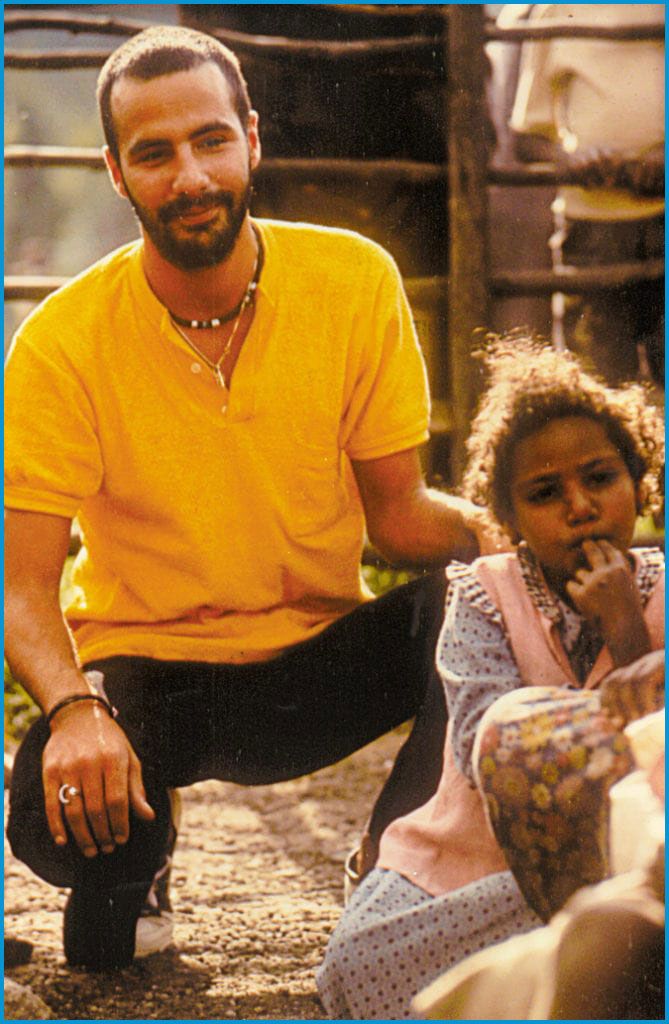
His songs and even his self-illustrated album covers often reflected his love for children through an idealistic hope and dream for a better world – “Blackness of the Night”, “Where Do The Children Play” and “Oh Very Young” being clearly obvious examples:
Oh very young, What will you leave us this time? There’ll never be a better chance To change your mind. And if you want this world To see (a better day) Will you carry The words of love with you? Will you ride The great white bird into Heaven?
Maintaining his optimism and hopes for a more equitable world and an end to wars he wrote other socially conscious songs such as “Peace Train”, “Changes IV”, “O Caritas”, “Ruins” and “Can’t Keep It In”.
In 1975, he received the Qur’an and began to study Islam. It was only after he almost lost his life in the Pacific ocean and was saved by an apparent act of Divine favour that he finally realised his spiritual home and became a Muslim in 1977.
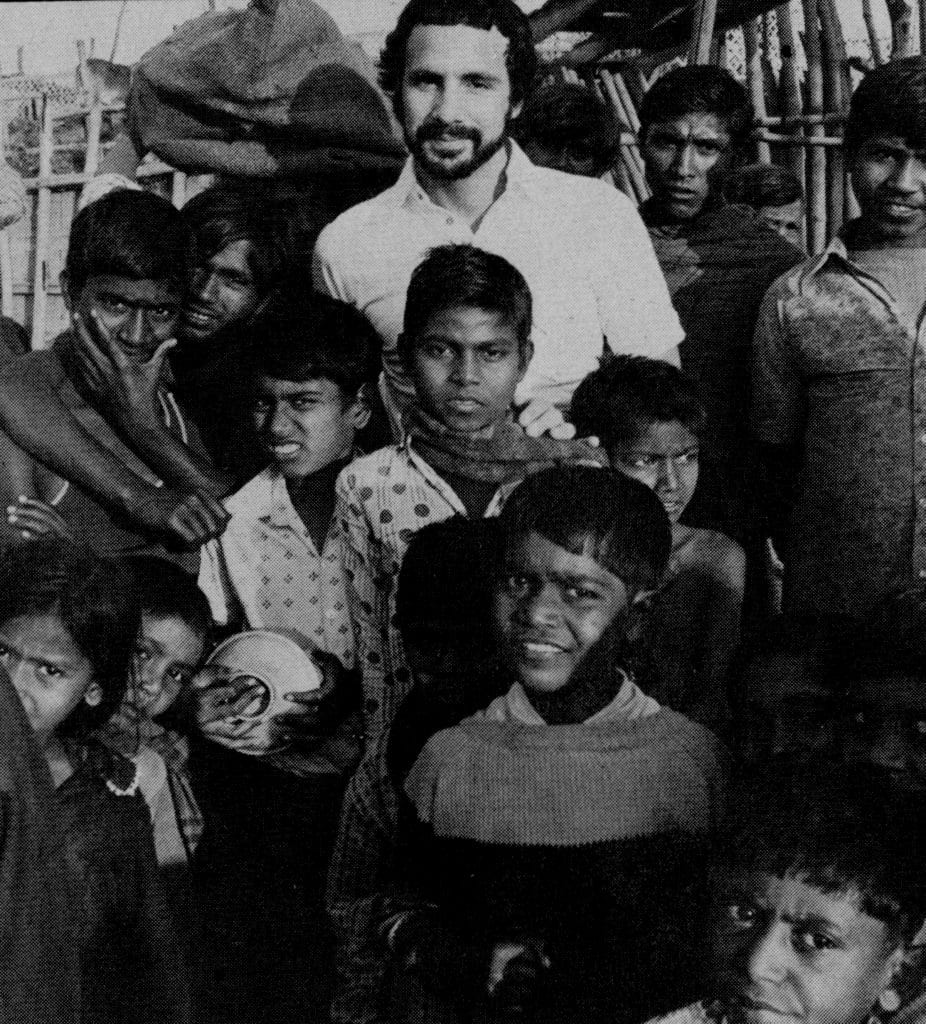
Having converted to Islam he struggled with the overt opulence and showy lifestyle of the pop music business and made the decision to walk away from the music industry. In 1979 he performed his last concert at the OXFAM/UNICEF concert, in Wembley Arena, that marked the International Year of the Child.
During his performance, he sang one of his elder brother’s songs, 'Child for A Day':
I was a child Who ran full of laughter I was a child who lived for today My eyes full of sunshine My heart full of smiles I was a child for a day
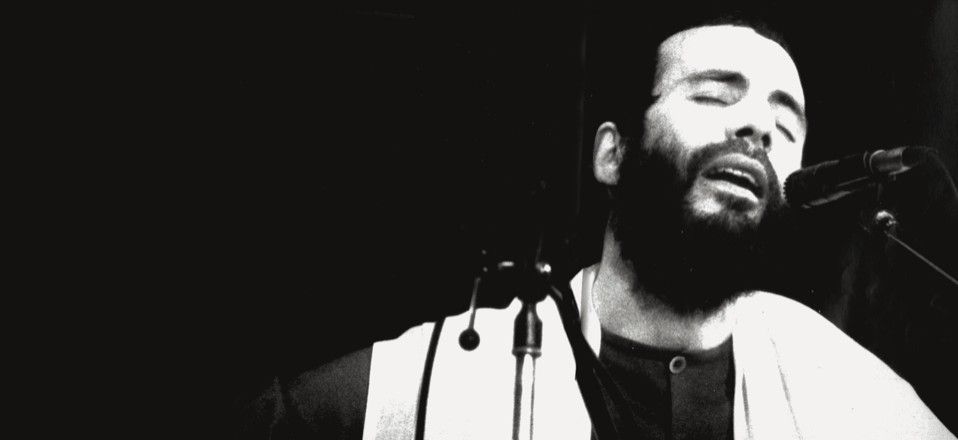
Music journalist Paul Gambaccini introduced Yusuf to the audience stating that “he has become one of Britain’s most popular international stars, but also the best friend UNICEF has had in rock music”. Yusuf performed a number of his most loved songs including “Father and Son” and “The Wind” and was joined on stage by his brother David and also Richard Thompson and David Essex.
At the time of the great famine and floods in Africa in 1985, Yusuf was asked to perform at the Live Aid concert at Wembley. The song he had prepared for his performance was called “In The End”, which he intended to sing a cappella, without a guitar or band.
And if you want to help your fellow man You’d better start with what is in your hand You can’t bargain with the truth ‘Cause one day you’re going to die And good’s going high. And evil’s going down in the end.
However, Yusuf was suspiciously excluded on the night. Nonetheless, seeing the humanitarian disaster taking place in Ethiopia and Sudan, Yusuf along with many Muslim friends and organizations in the UK established a humanitarian charity called Muslim Aid. It drew together leaders of a number of variant organisations who were united by the desire to provide relief for those affected by the 1983-85 famine which claimed almost half a million lives.
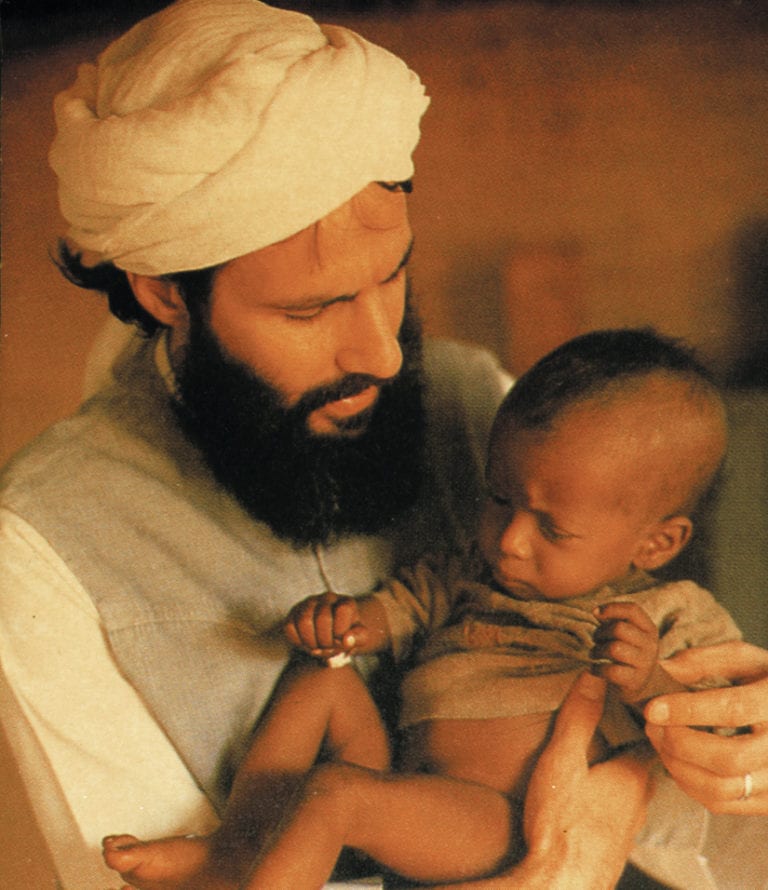
Yusuf acted as chairman for Muslim Aid from its inception until 1996. The charity has grown into one of the world’s foremost humanitarian organisations and is dedicated to helping those who are victims of conflicts or natural disasters and are suffering from: poverty, hunger, disease, illiteracy, discrimination, homelessness, debt, unemployment, injustice, deprivation, or lack of skills and economic opportunities.
I Have No Cannons That Roar The Bosnian war of 1992-1995 was marked by genocide, ethnic cleansing, and horrific humanitarian atrocities led by Radovan Karadži against the Muslim Bosnians. Muslim Aid focused its efforts on the needs of orphans, widows, and families that had been devastated by the conflict.
“I remember in the early days of the conflict in Bosnia, one Egyptian doctor working on the ground phoned me from Sarajevo and pleaded with me to use my voice for children who were being slaughtered and maimed. That inspired me to write, ‘The Little Ones’.”
Yusuf renamed the song ‘The Little Ones (of Sarajevo and Dunblane)’ following the Dunblane Massacre of 1996, in which sixteen children and their teacher were killed by a lone gunman in a Scottish primary school.
Oh they killed all the Little Ones With their eyes open wide There was no one to help them On the day that they died No bed to run under, No cupboard to hide
Strangely, it was the Bosnian War which awoke in Yusuf the need to revive his skills in the field of music more seriously. In 1995, in his capacity as chairman of Muslim Aid, Yusuf met Dr Irfan Ljubijankic, the Bosnian Foreign Minister. He gave Yusuf a cassette recording of a song he’d written in the hope that it might be used to help heal the war-torn region.
“The tragedy of the Bosnian war also helped me discover a whole new genre of Islamic European music. Whilst working for Muslim Aid and providing support to the orphans and families in the Balkans, I met the then Bosnian Foreign Secretary, Dr Irfan Ljubijankić, who had written a Bosnian song called ‘I Have No Cannons That Roar’. Dr Irfan’s song, the melody and words, were so moving, I was strongly affected. When we heard that he was shot down in a helicopter while flying over the hills of Bosnia, it made me realize I had to do something with Dr Irfan’s song.”
Tragically, Dr Irfan Ljubijankic was killed towards the end of the war. Yusuf decided to honour him by recording an album named after his song, ‘I Have No Cannons That Roar’, to raise funds for the victims of the Bosnian conflict. The album also featured a compilation of songs that were famous in Bosnia during the war and included Yusuf’s ‘The Little Ones’.

I have no cannons that roar But I have faith in God and love And I’ll surrender you to no one else My mother, Bosnia, my love
In response to the Kosova War of 1999, Yusuf and his wife, Fawziah, set up a family personal charity called Small Kindness to help relieve the suffering and deliver aid to the refugees in Albania. It has gone on to help countless of the most vulnerable victims of many conflicts and natural disasters ever since. In 2003 Yusuf received the ‘World Social Award’ in Germany from Mikael Gorbachev for “dedicating his life to aiding the needy and the ill.” In 2004 Small Kindness earned the WANGO Humanitarian Award from the World Association of NGOs.
Indian Ocean
The 2004 Indian Ocean Tsunami claimed the lives of over a quarter of a million people making it one of the deadliest natural disasters in recorded history. It affected those living in almost all of the countries that border the Indian Ocean with Indonesia, Sri Lanka, India, and Thailand bearing the brunt of the destruction. As well as the catastrophic number of fatalities, many families and communities were destroyed and huge areas became humanitarian disaster zones.

Yusuf and his wife, Fawziah, flew to Indonesia to visit the survivors. Whilst there, Yusuf picked up a guitar and performed a rendition of a specially written song called ‘Indian Ocean’, as well as ‘Wild World’, with the accompaniment of local Indonesian musicians. It was the first time in almost 25 years that he’d sung and performed publicly with a guitar. The profoundly positive effect it had in lifting the spirits of those who had lost so much was a significant factor in his decision to return to music making.
The wave was a-pounding as we scrambled up the mountain No one even dared to turn their head Just one slip and you’re dead – As the waves were dying, a child was crying Searching for her mum and dad A thin dress was all she had She held us tight, we looked far and wide But nothing there… there was nothing left We all broke down and wept.
Yusuf recorded ‘Indian Ocean’ with all proceeds going to help orphans in Banda Aceh, Indonesia, one of the worst affected areas where Small Kindness have been active since the disaster. The song tells a story of an English family on holiday taking in an orphan after the tsunami. It demonstrates Yusuf’s deep-rooted belief in the potential for music to be uplifting to people’s souls.
He Was Alone
Throughout the last decade, Europe has been experiencing a refugee crisis with many desperate people fleeing conflict, political instability, and economic hardship to seek safety on the continent. A key contributing factor was the terrible civil war in Syria. Small Kindness has been working to support the child victims of this exodus, many of whom find themselves orphaned or targeted for their vulnerability. Yusuf visited a refugee camp on the Turkish/Syrian border and reported of his experience:
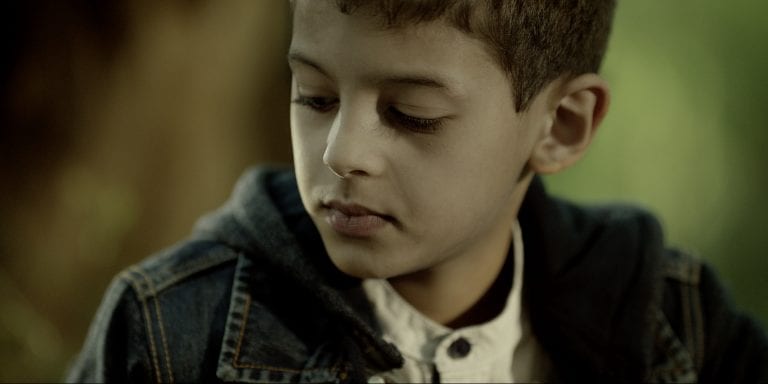
“I’ve just returned from a visit to southern Turkey and a camp on the Turkish/Syrian border in Gaziantep. People here have lost their homes and are waiting for peace to return, but the children still remain bright and hopeful. The visit was much appreciated and they sang for me. A beautiful human experience.”

Inspired by the saying of Pope Francis during his visit to a refugee camp in Greece, Yusuf established the #YouAreNotAlone campaign. The charitable drive featured a single called ‘He Was Alone’, and a concert at Central Hall in Westminster – across the road from the British Houses of Parliament. The concert was supported by Ricky Gervais, Steve McQueen, Pete Townshend, Naomie Harris, Naomi Campbell, Bob Geldof, Ben Elton, Blondie, Omid Djalili, Emma Thompson, and Queen. All proceeds and donations were channeled through Save The Children and Small Kindness.
“I simply decided to help humanise the narrative and lend my voice to the call for keeping hearts and doors open to every refugee, especially youngsters, who have lost what future they might have once hoped for.”
He was one who never grew old On a list of names, upon the road

Maybe There’s A World
In addition to the charities and campaigns that Yusuf has helped steer from the forefront, he has lent his support to a wide range of other good causes.
This year Yusuf arranged to feed the Palestinian refugees still exiled in Lebanon. For the whole month of Ramadan over one thousand families are enjoying their breakfast time with the food provided.
Yusuf’s memories of Palestine go back as far as 1988 when he traveled there to deliver aid to the first victims if the crackdown on the Intifadah. Thereafter, the Israelis branded him ‘undesirable’ and refused to allow him to re-enter the Holy Land. Yet his hope still continues that the world may one day wake up and look at the suffering for what it is, an abominable humanitarian tragedy created by apathy and heavily one-sided support for the status quo with no merciful end in sight.
I have dreamt of an open world, Borderless and wide Where the people move from place to place And nobody’s taking sides Maybe there’s a world that I’m still to find Maybe there’s a world that I’m still to find Open up o world and let me in, Then there’ll be a new life to begin
At the start of 2020 Yusuf officially begun channeling all of his charity work through the Yusuf Islam Foundation, and established Peace Train with the soul aim to ‘feed the hungry and spread peace’ bringing relief and education through the promotion of peace and respect amongst people of different backgrounds, nationalities, and religions. He actively engages in the charities projects with the hope that one-day people will jump up on the Peace Train, with hearts open – borderless and wide…
‘Cause out on the edge of darkness, there rides a peace train Oh peace train take this country, come take me home again

For more information about Yusuf/Cat Stevens please visit catstevens.com

- Biographies & Memoirs
- Arts & Literature

Download the free Kindle app and start reading Kindle books instantly on your smartphone, tablet, or computer - no Kindle device required .
Read instantly on your browser with Kindle for Web.
Using your mobile phone camera - scan the code below and download the Kindle app.

Image Unavailable

- To view this video download Flash Player

Follow the author

Why I Still Carry a Guitar: My Spiritual Journey from Cat Stevens to Yusuf Hardcover – October 20, 2015
The internationally celebrated folk singer and philanthropist chronicles his profound personal and spiritual odyssey and reveals why he has taken up his guitar once again.
In 1970, Cat Stevens rocketed to fame with his Top 10 Billboard album, Tea for the Tillerman . Less than a decade later, this beloved artist had converted to Islam, changed his name, auctioned off his guitars, and embraced a life of spirituality and charity. Now, more than thirty years later, the famously reclusive singer and songwriter has taken center stage again to share the gripping and often moving story of his personal journey and deliver a powerful message of peace.
Dispelling the myths that have long surrounded his actions, Yusuf Islam recalls his transformation from a boy experiencing the dizzying heights of superstardom to a man defined by his Muslim faith who chose to give up his musical career. He speaks poignantly about Islam and what it means in the world today, and shares the hopes that have propelled his return to music.
Wise and illuminating, as compelling and thoughtful as his finest songs, Why I Still Carry a Guitar is an inspiring story of an extraordinary leader who transcends the East-West divide; a man brave enough to take a leap of faithand the difference it has made to his life and the world.
- Print length 208 pages
- Language English
- Publisher Harperone
- Publication date October 20, 2015
- Dimensions 5.98 x 0.79 x 9.02 inches
- ISBN-10 006240623X
- ISBN-13 978-0062406231
- See all details

Product details
- Publisher : Harperone (October 20, 2015)
- Language : English
- Hardcover : 208 pages
- ISBN-10 : 006240623X
- ISBN-13 : 978-0062406231
- Item Weight : 1.42 pounds
- Dimensions : 5.98 x 0.79 x 9.02 inches
About the author
Cat stevens / yusuf islam.
Discover more of the author’s books, see similar authors, read author blogs and more
Customer reviews
Customer Reviews, including Product Star Ratings help customers to learn more about the product and decide whether it is the right product for them.
To calculate the overall star rating and percentage breakdown by star, we don’t use a simple average. Instead, our system considers things like how recent a review is and if the reviewer bought the item on Amazon. It also analyzed reviews to verify trustworthiness.
- Sort reviews by Top reviews Most recent Top reviews
Top reviews from the United States
There was a problem filtering reviews right now. please try again later..
- Amazon Newsletter
- About Amazon
- Accessibility
- Sustainability
- Press Center
- Investor Relations
- Amazon Devices
- Amazon Science
- Sell on Amazon
- Sell apps on Amazon
- Supply to Amazon
- Protect & Build Your Brand
- Become an Affiliate
- Become a Delivery Driver
- Start a Package Delivery Business
- Advertise Your Products
- Self-Publish with Us
- Become an Amazon Hub Partner
- › See More Ways to Make Money
- Amazon Visa
- Amazon Store Card
- Amazon Secured Card
- Amazon Business Card
- Shop with Points
- Credit Card Marketplace
- Reload Your Balance
- Amazon Currency Converter
- Your Account
- Your Orders
- Shipping Rates & Policies
- Amazon Prime
- Returns & Replacements
- Manage Your Content and Devices
- Recalls and Product Safety Alerts
- Conditions of Use
- Privacy Notice
- Consumer Health Data Privacy Disclosure
- Your Ads Privacy Choices

IMAGES
VIDEO
COMMENTS
A Journey is a greatest hits compilation released by Starbucks Entertainment in 2010.
Cat Stevens was born Stephen Demetre Georgiou on July 21, 1948, in London, England as the youngest of three children. His parents, Greek Cypriot father Stavros Georgiou and Swedish Baptist mother ...
Yusuf Islam (born Steven Demetre Georgiou; 21 July 1948 ), [1] commonly known by his stage names Cat Stevens, Yusuf, and Yusuf / Cat Stevens, is a British singer-songwriter and musician. He has sold more than 100 million records and has more than two billion streams. [2] His musical style consists of folk, rock, pop, and, later in his career ...
The eminent musician and humanitarian Yusuf Islam - previously known as Cat Stevens - has returned to the spotlight with a project that is perhaps his most personal work to date. In his first book, Why I Still Carry a Guitar, the 66-year-old speaks - powerfully and with some dry humour - of his spiritual journey since converting to ...
A- Early Life and Career of Cat Stevens. Born on July 21, 1948, to a Greek-Cypriot father and Swedish mother in London, Steven Demetre Georgiou had a multicultural upbringing. Renaming himself Cat Stevens, for its catchy and memorable quality, he embarked on his musical journey in the 1960s. B- The Religious Conversion: Yusuf Islam and Music
Biography. Cat Stevens grew from being a teen idol of the 1960s into one of the most influential singer-songwriters of all time. In addition to his vast musical achievements, his lifelong spiritual quest has added intrigue and depth to a groundbreaking career. Cat achieved early success in the mid 60s with "I Love My Dog" and "Matthew and ...
Opus Collection: A Journey by Cat Stevens released in 2010. Find album reviews, track lists, credits, awards and more at AllMusic.
Tea For The Tillerman (1970) This is the quintessential Cat Stevens album, where the tentative quest of Mona Bone Jakon blossoms into a journey of discovery fuelled by faith and optimism, whether he's wondering Where Do The Children Play, looking for a Hard Headed Woman, plotting the route on Miles From Nowhere or simply On The Road To Find Out.. His sense of melody and distinctive, catchy ...
Cat Stevens: a journey of transformation and introspection. Born as Steven Demetre Georgiou in London, he began his musical career in the 1960s under the stage name Cat Stevens. Catchy, folk-inspired tunes characterized his early work, and he quickly rose to fame with hits like "Wild World" and "Father and Son."
Cat Stevens - A Journey : Opus Collection. More images. Label:Starbucks Entertainment - NSPENT10PKG-00352, Universal Music Special Markets - B0014589-02: Series:Opus Collection: Format: CD, Compilation. Country:US: ... Cat Stevens / Yusuf Islam by udo.lutze; View More Lists ...
Life. Cat Stevens grew from being a teen idol of the 1960s into one of the most influential singer-songwriters of all time. In addition to his vast musical achievements, his lifelong spiritual quest has added intrigue and depth to a groundbreaking career. Cat achieved early success in the mid 60s with 'I Love My Dog' and 'Matthew and Son'.
Stevens also revealed that one of the most upsetting times in his life was the media's portrayal of him as a supporter of the Iranian fatwa against the novelist Salman Rushdie in 1989.
Sun 27 Sep 2020 01.30 EDT. The singer-songwriter now known as Yusuf Cat Stevens has spoken of the pain of his decision to leave music behind in 1977, when he first converted to Islam, and of the ...
CAT STEVENS - A MUSICAL JOURNEY. Originally Broadcast January 5th 2001. Listen to Bob Harris' interview with Yusuf Islam. In late September 2001 Yusuf Islam gave one of the most revealing ...
August 13, 2020. Yusuf/Cat Stevens tackles materialism and self-discovery in the new video for "On the Road to Find Out." Neil Lupin/Redferns/Getty Images. Gearing up for the release of Tea for ...
Yusuf Islam (Cat Stevens) was one of the biggest rock stars in the world. On September 21, 2004, a United Airlines flight from London to Washington D.C. was diverted to Bangor, Maine.
The legendary Yusuf Islam (Cat Stevens) joins TED Curator Chris Anderson for a discussion on the influence of Yusuf's music, his faith and the importance of ...
In this video, we take a nostalgic trip down memory lane to explore the iconic singer Cat Stevens' journey through time. Starting with his early days in the ...
Yusuf / Cat Stevens has announced King of a Land, his seventeenth studio album, set for release via BMG / Dark Horse Records on 16th June 2023. Pre-order here. King of a Land is an epic body of work. More than a decade in the making, its 12 new songs are full of extraordinary surprises. Unique and transportive, Yusuf's new music, words and ...
Over the course of his life, Yusuf's journey has become as much about his charitable work and philanthropy as it is about music. He has tirelessly used his public profile to draw attention to those in need across the globe. ... Apart from his regular donations, Yusuf (or Cat Stevens as he was widely known as then) participated in a variety of ...
One Beginning. Everybody who comes into the world has to make sense of it for their own security and peace of mind. The Universe is a very big place, and it's easy to get lost. I was no different. The Universe consists of billions of galaxies and each galaxy has an uncountable number of stars. This alone should be enough for us to ponder.
It is simply an account of Cat Stevens' spiritual journey from Cat to Yusuf. He explains what attracted him to Islam, how that affected his decisions, why he abandoned music for a decade, and why he felt Allah was leading him back to performing. All in all it is a very concise, well-written apologia for Islam and his own personal understanding ...
New book by Yusuf. Why I Still Carry a Guitar is the gripping and often moving story of Yusuf Islam's journey from his life as a boy experiencing the dizzying heights of music superstardom, to a man defined by his faith who chose to give up music for over a quarter of a century, but is now back again delivering his powerful message of peace ...